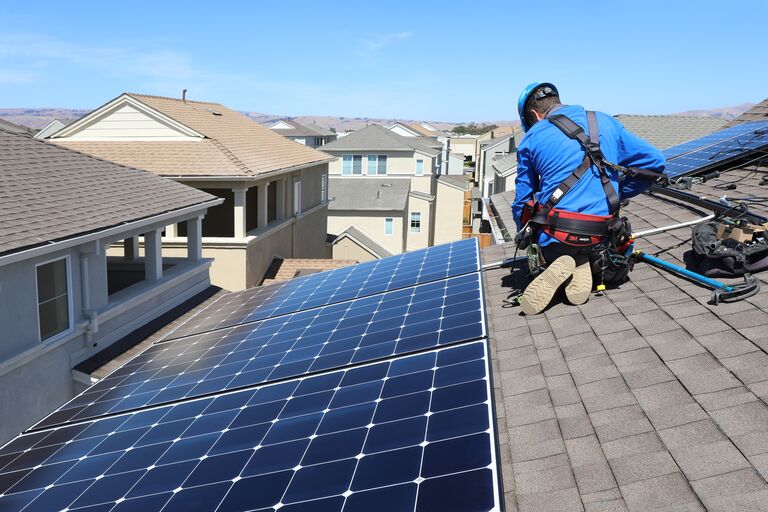The Full Overview to Solar Energy Installment: Conserve Cash and Go Environment-friendly
Exploring the nuances of solar power installation reveals a multifaceted method to both cost savings and environmental responsibility. Homeowners are increasingly considering solar power not only as a viable alternative however as a strategic investment that can yield significant lasting advantages. Nevertheless, the process includes careful consideration of numerous variables, consisting of system choice and installation procedures. Recognizing these aspects is important for taking full advantage of efficiency and financial savings. What details steps should one take to make certain a successful transition to solar energy, and exactly how can financial motivations additionally enhance this undertaking?
Advantages of Solar Energy
The expanding fostering of solar energy mirrors a considerable change towards sustainability and ecological responsibility. Among the key benefits of solar power is its ability to minimize reliance on fossil fuels, bring about reduced greenhouse gas exhausts. By harnessing the sun's power, people and businesses can add to a cleaner setting and reduce the negative results of climate modification.
In addition, solar energy can result in significant financial savings. When mounted, photovoltaic panels considerably reduced power bills, as they generate energy from a sustainable resource. Several governments also provide rewards, discounts, and tax obligation credit scores to motivate solar fostering, better boosting financial viability.
Another noteworthy advantage is energy self-reliance. Solar power systems enable property owners and services to create their very own electrical energy, minimizing susceptability to rising and fall power prices and supply interruptions. Furthermore, solar power systems need very little maintenance, translating to lower lasting functional prices.
Selecting the Right Planetary System

Solar systems vary significantly in cost depending on their type, size, and efficiency. Take into consideration possible financing choices such as loans, leases, or power purchase agreements (PPAs) that may ease ahead of time expenses.
Readily available area is one more important aspect. Examine your roofing's positioning, angle, and shading, as these aspects can affect solar panel efficiency. If roof room is minimal or improper, ground-mounted systems might be a practical alternative.
It's important to carry out extensive research to understand the details rewards available in your location, as they can differ extensively. Consulting with a solar installation specialist can assist you navigate these alternatives successfully, ensuring you optimize your cost savings while contributing to a much more sustainable power future.
Preserving Your Planetary System
Efficient maintenance is vital for making sure the longevity and ideal performance of your solar energy system. Regular maintenance can help stop minor concerns from escalating right into costly fixings and guarantee optimal energy performance.
Start with regular inspections of your solar panels, preferably every six months. Seek dirt, debris, or any kind of signs of damage. best solar energy company in fort lauderdale. Cleaning the panels, especially in locations prone to dirt or bird droppings, can significantly look here improve power manufacturing. Use a soft brush and moderate cleaning agent to avoid damaging the surface area.
Next, keep an eye on the inverter. This part converts solar power into functional power and should be checked monthly. A lot of contemporary inverters have checking systems that alert you to performance problems, enabling for prompt intervention.
In addition, check the wiring and connections for any type of indications of rust or damage, as these can cause reduced performance or system failing. Take into consideration specialist upkeep solutions every year for a detailed examination.
Final Thought
In final thought, the adoption of solar power presents substantial benefits, consisting of minimized electrical energy expenses and a positive ecological influence. Cautious consideration in selecting the appropriate planetary system, combined with a clear understanding of the setup process, boosts the total experience. Financial rewards and regular upkeep additionally contribute to the long-term advantages of solar power. Ultimately, embracing solar modern technology represents a vital action toward sustainability and energy freedom, promoting a greener future for all.